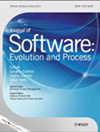From Data to Knowledge: Mining Linux Vulnerability Characteristics and Evolution With Knowledge Graphs
Abstract
An operating system is the essence of software, serving as the foundation for the operation of various application software. The security of the operating system is crucial for national informatization construction. Data indicate that many cybersecurity incidents result from exploiting security vulnerabilities in the operating system. Linux is currently the most widely used open-source operating system, with thousands of Common Vulnerabilities and Exposures (CVEs) related to Linux systems reported each year. Therefore, research and prevention of vulnerabilities in the Linux system are particularly important. To gain a better understanding of the characteristics of Linux system vulnerabilities, this paper leverages knowledge in the field of software security to analyze nearly 10,000 historical vulnerability data in two core systems of Linux: Linux Kernel and Debian Linux. The study explores the evolutionary patterns of vulnerability characteristics. Specific research contents include the following: (1) data collection and cleaning of vulnerability data in Linux Kernel and Debian Linux systems; (2) cross-statistical analysis of structured data features in vulnerability reports; (3) unstructured data characteristics mining in vulnerability reports based on domain knowledge; (4) analysis of the evolution of vulnerability characteristics. This paper provides empirical lessons and guidance for Linux system vulnerabilities to assist practitioners and researchers in better preventing and detecting vulnerabilities in Linux and Linux-based systems.

 求助内容:
求助内容: 应助结果提醒方式:
应助结果提醒方式:


